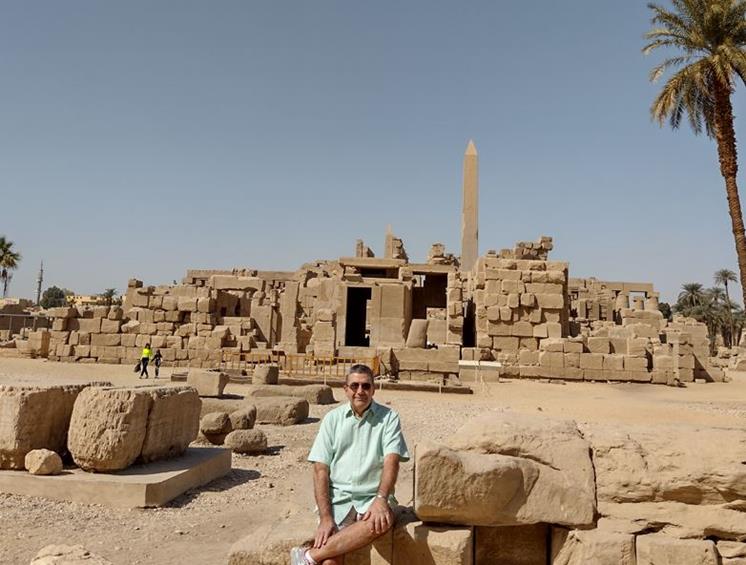Water rights are at the heart of a growing geopolitical conflict between Egypt and its neighbors, as I discussed in my missive last week during my annual trip to the region. In the center of this conflict is the Grand Ethiopian Renaissance Dam (GERD) under construction in Ethiopia since 2011, and which Egypt is concerned will affect the flow of the Nile, which provides 97 percent of Egypt’s fresh water reserves.
In mid-2021 the U.N. Security Council (UNSC) got involved in the dispute over Ethiopia’s GERD project at the urging of Egypt and Sudan. On July 8 the council recommended that the issue be resolved by African Union (AU)-led negotiations. Importantly, the UNSC did not request Ethiopia to refrain from further major steps until an agreement was reached. On Sept. 15, the council again issueda bland statement encouraging resumption of negotiations via the AU “within a reasonable time frame.” Nothing happened.
Following the U.S.-Egypt “Strategic Dialogue” in Washington D.C., a joint statement was issued in November in which the American side expressed support for Egypt’s water security. This sounded nice, and of course it is only reasonable to support “Egypt’s water security” on which its survival depends, but the statement fell far short of Cairo’s hopes for a clear warning to Ethiopia’s capital, Addis Ababa, that its continued position that the dam was a fait accompli would carry a political and economic cost.
For the past six months, there has been no progress and no direct negotiations between the parties.Last month, it was announced that Ethiopia would start generating electricity from the dam. This is a new unilateral step, which will certainly intensify existing tensions with both Egypt and Sudan.
In recent weeks, Egypt has renewed diplomatic pressure on Ethiopia to resume dam negotiations. Egyptian Prime Minister Mostafa Madbouly said on Jan. 25 that Cairo wants to reach a “balanced agreement.” This initiative came a few days after a statement issued by Madbouly’s Ethiopian counterpart, Abiy Ahmed: “Ethiopia believes that Nile waters can be developed reasonably and equitably for the benefit of all people of riparian countries, without causing significant harm,” Ahmed said. The dam “holds multiple benefits for the two downstream countries of Sudan and Egypt, as well as the East African region at large.”
Ahmed’s agreeable rhetoric did not reflect any real change in Ethiopia’s position. His statement was notably devoid of any suggestion for a future mechanism or format to kick-start the negotiating process. It is likely that the government in Addis Ababa has no intention to accept a legally binding agreement that would regulate the process of filling and operating the dam during periods of drought, when the two downstream countries would be critically vulnerable to the reduction in water supply. The Ethiopian government also refuses to accept a binding arbitration mechanism for settling future disputes, as demanded by Egypt and Sudan, insisting instead on an agreement that would include only nonbinding guidelines.
An official source at the Arab League, which supports the position of Egypt and Sudan in the dispute, has warned that Ethiopia is trying to color the issue as a conflict between the Arab League and the African Union. There is some merit to this claim. Ethiopia, Africa’s oldest independent country and second most populous with 115 million people, is majority Christian (67 percent), in contrast to the Arab world. The country has endured military dictatorship, civil war, and devastating famine since the downfall of Emperor Haile Selassie, but over the past decade it has enjoyed impressive economic growth and it has enhanced its regional dominance. Ethiopia sees itself as a leader not only in the Horn of Africa but in East Africa as a whole. Ethiopian officials have often made claims of future benefits for the region—notably Kenya, to the south—from the completion of the dam.
Another reason for Ethiopian intransigence is the need for the government in Addis Ababa to assert its authority in the context of its ongoing military campaign in the rebellious Tigray region, in the north of the country. The conflict has killed thousands, forced over two million people to flee their homes, and caused famine in some parts of the country. In recent months, government forces have made gains in their campaign against the Tigray People’s Liberation Front (TPLF) rebels. The government hopes to end the conflict through negotiations with the remnant of the TPLF, but by maintaining a firm position in relation to Egypt and Sudan, Ethiopia seeks to enhance its image of self-confidence and firmness throughout the region.
While there is an agreement among foreign observers that the Tigray war has negatively affected the GERD negotiations, it is by no means certain that ending the conflict would be conducive to a new round of talks with Egypt and Sudan. Quite the contrary: former U.S. Ambassador to Ethiopia David Shinn thinks that settling the war with Tigrayans on Ahmed’s terms would not be in Egypt’s interest. He added that the restoration of control by Ethiopia’s government would only strengthen its hand in standing up to Egypt.
In this controversy, Egypt’s choices are limited. It is generally accepted that military action is not a realistic option in the short-to-medium term. Such action is not excluded at some future time, however, should Ethiopia’s use of the dam start causing serious harm to the Egypt’s vitally important agricultural production. To millions of Egyptians, it is simply unacceptable that a foreign country should have the ability to control the nation’s deeply essential resource, Iteru, the Great River.
